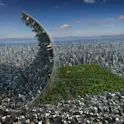Frontiers Communications
Editor
Editor

Open science and peer review
22 May 2015
Selected news, views and information on Open Science and scholarly publishing from the past week Chronicle of Higher Education ‘We need to take a look at the data’: how 2 persistent grad students upended a blockbuster study New York Times Retraction sought in study on views of gay marriage Science Open-access publisher sacks 31 editors amid fierce row over independence Frontiers Blog Frontiers acts to defend distributed editorial independence The Conversation Publisher pushback puts open access in peril Research Information Elsevier rebuffs COAR/SPARC criticism of sharing and hosting policy Retraction Watch What should an ideal retraction notice look like? Frontiers in Ecology and Evolution Blind trust in unblinded observation in Ecology, Evolution, and Behavior BioMed Central blogs The future of peer review NY Times Fake diplomas, real cash: Pakistani company Axact reaps millions Boston Globe The exploitative economics of academic publishing Library Journal U. Minnesota Press, CUNY grad center develop hybrid publishing platform University of Delaware University of Delaware Library joins COAPI open access coalition Campus Technology CU Boulder adopts Open Access BBC Ocean’s hidden world of plankton revealed in ‘enormous database’ BBC Opal citizen science project expands across the UK University World News Major research trends – clustered, international, […]

Open science and peer review
20 May 2015
Selected news, views and information on Open Science and scholarly publishing from the past week The Guardian Will traditional science journals disappear? Fusion This scientific paper has 2,863 authors. How? BBC Top science panel to advise European Commission BioMed Central Blogs A beginner’s guide to peer review: Part One Manchester Evening News University of Manchester spends more on journal subscriptions than any other institution in UK Research Information An academic approach to sales and marketing in publishing The Guardian Will traditional science journals disappear? Wired Why publishers should not fear Facebook’s content megacity Harvard Gazette Robert Darnton closes the book Publishers Weekly The changing face of STM publishing University of New Mexico News UNM Libraries opens the digital door to a treasury of information The Guardian Super-scholars: MPAA offers $20,000 for academic research in copyright battle Library Journal Why internet searches are not enough | peer to peer review BioMed Central blog Gigascience pushes metabolomics Open Data & training Universität München Ein neues Modell des Publizierens

Health
20 May 2015
Our Frontiers Editorial Office brought to our attention a couple of papers that are getting a lot of attention lately so we decided to write a short blog in honor of Mental Health Blog Day (#MHBlogDay) . The first is a paper on the association between depressive symptoms and physical diseases in Switzerland (read full paper). The objective of the paper is to estimate the association between the symptoms and physical diseases to estimate mental and physical health care costs in the future. The second paper that is growing in interest is The Grand Challenge by the SCE. The grand challenge paper is interesting because it’s the SCE’s reflection on the 2013 release of DSM-5 (Diagnostic and Statistical Manual which lists mental disorders). The paper looks at the impact psychiatric diagnoses have on the lives of the people and on the health care systems that support them. It also looks at how moving from the current categorical approach to diagnoses to a continuum approach could help solve some of the current problems. Have a great #MHBlogDay!

Frontiers news
19 May 2015
Frontiers in Ecology and Evolution is proud to announce the launch of its newest section – “Biogeography and Macroecology“, led by Specialty Chief Editor Peter Convey of the British Antarctic Survey (BAS), UK. “Pressures faced by global diversity today are unprecedented, so it has never been more urgent that we develop our understanding at all scales of the distribution of biodiversity and controls of its changing patterns.” – Peter Convey, Chief Editor Frontiers in Ecology and Evolution is part of Frontiers’ open-science platform and research network. The journal series won the Gold Award for Innovation in Publishing by the Association of Learned and Professional Society Publishers in 2014, and with 50,000 editors, 100,000 authors and nearly 30,000 articles published, Frontiers is one of the leading open access publishers in the world. The Biogeography and Macroecology specialty section was created to meet the growing demand of research being conducted in this area. “This new Section, and Open Access publication, will bring research on Biogeography and Macroecology to a wider audience far beyond the purely academic realm at this critical time.” – Peter Convey, Chief Editior The editorial board of Biogeography and Macroecology is currently composed of the following Associate Editors: Kevin Burns, Victoria Unviersity of Wellington, Wellington, New […]

Frontiers news
13 May 2015
Frontiers is launching Protocols — articles that provide detailed, stepwise guides to experimental procedures, with the goal of enhancing the reproducibility of results and maximizing the accuracy of the scientific record.

Frontiers news
11 May 2015
Today marks the launch of Intensive Care Medicine and Anesthesiology, a new specialty section in the open-access journal Frontiers in Medicine.

Frontiers news
11 May 2015
Frontiers is proud to announce the launch of our newest Open Access journal, Frontiers in Applied Mathematics and Statistics, which is now open for submissions.

Frontiers news
07 May 2015
Frontiers today ended the engagement of several Specialty Chief Editors and the Field Chief Editors of Frontiers in Cardiovascular Medicine and Frontiers in Medicine.

Frontiers news
06 May 2015
Frontiers has officially launched a newly designed, mobile-friendly website to shine the spotlight on the thousands of open access authors and the expert scientists who are part of the publisher’s editorial board.

Young Minds
01 May 2015
A couple of weeks ago a wonderful hashtag was making its way around Twitter, with female scientists all over the world sharing photos of their feet to show a day #InMyShoes.

Young Minds
30 Apr 2015
Note: This blog post was originally published as a blog on Scientific American (http://blogs.scientificamerican.com/frontiers-for-young-minds/even-scientists-play-with-their-food/) Have you ever been told not to play with your food? Perhaps been told that it isn’t polite or disrespects the other people at the table? I have a confession: sometimes I play with my food. I can’t help it! There are certain things I have learned throughout my life, in science classes or otherwise, that just stick with me – and I just can’t help myself. Three of the worst offenders have been outlined below. Yogurt Tension Gashes Context: As a structural geologist I have spent a fair amount of time staring at deformed rocks and trying to figure out how they ended up that way. Huge tectonic forces over time, moving of faults, etc. Now look at the example below. How do you think that those cracks could have formed in the darker sandstone so that they could be filled in later with the white minerals? Why did they form all lined up in a row like that? What possibly could have caused a feature like this to form? The food: A nice, freshly opened container of yogurt (preferably plain and without very much added sugar). […]

Frontiers news
29 Apr 2015
Frontiers in Immunology has been selected for indexation in the Journal Citations Reports. This means that the journal will be included in the Web of Science database, and the title will receive its first official impact factor in summer 2015.

Neuroscience
23 Apr 2015
NEW RESEARCH TOPIC: Are you passionate about computational modelling of neuropsychological disorders? Do you research different levels of modelling (from spiking neurons to higher-level connectionist modeling ) using imaging and behavioral data? Then this topic is for you. “Neuropsychology through the lenses of computational modelling”, is a new Research Topic open for submissions in Frontiers in #ComputationalNeuroscience. Read more: https://lnkd.in/eBb3Wi9

Life sciences
22 Apr 2015
Urban Ecology is a new specialty section available through the community-run open-access journals Frontiers in Ecology and Evolution. “Urban ecology is highly interdisciplinary and there are very few journals that have the right scope for the most exciting new papers. Research in urban ecology can bring together disciplines as diverse as biology, physical science, engineering, social science, and urban planning and design. The new speciality section will be a great new venue for these papers.” – Diane Pataki, Specialty Chief Editor, Frontiers in Ecology and Evolution – Urban Ecology The Urban Ecology section invites submissions that advance our understanding of the structure, function, and dynamics of urban ecosystems from a diverse range of perspectives. Urban ecology is a broad ranging field that incorporates methods and perspectives from many disciplines to understand the complex components and processes of cities and settlements as well as interactions between human settlements and larger regions. We use the term “urban” broadly to refer to human settlements and their transitions over a range of scales and definitions, from local political and land use/land cover–based definitions to larger geographic boundaries and ecological footprints. Submissions related to biophysical as well as social processes in urban ecosystems are welcome, including studies of urban socioeconomic dynamics, […]

Open science and peer review
21 Apr 2015
Frontiers Co-Founder and CEO Kamila Markram sat down with Euroscientist to discuss how Frontiers is designed to remedy some of the shortcomings of the academic publishing process
Get the latest research updates, subscribe to our newsletter